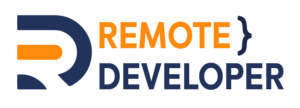Today, technology is constantly changing. New discoveries and mechanics are being developed daily, and remote developers face constant pressure to stay ahead of the curve. With new programming languages, frameworks, and tools emerging regularly, continuous learning has become a critical aspect of career success for developers.
Luckily, online learning platforms provide a convenient and flexible way to upskill, especially for remote developers seeking to enhance their expertise and remain competitive in the global job market.
In this article, we will highlight the ten best online learning platforms for remote developers in 2024, showcasing courses and resources that can help professionals refine their skills and advance their careers.
Criteria for Choosing the Best Platforms
When selecting the best online learning platform, remote developers must consider various factors that cater to their needs. Here are the key criteria for evaluating these platforms:
- Flexibility and Self-Paced Learning. Remote developers often have to manage client projects and work deadlines, so learning at their own pace is crucial.
- Variety of Courses and Topics. A comprehensive selection of courses in programming languages, frameworks, and development tools is essential for well-rounded upskilling.
- Quality of Instructors and Course Materials. Learning from industry experts ensures that developers are acquiring current and relevant skills.
- Certification and Career Development Opportunities. Earning certifications can help developers demonstrate their knowledge and open new doors for career growth.
- Cost-Effectiveness. Many developers look for affordable platforms that offer high-quality content without breaking the bank.
Top 10 Online Learning Platforms for Remote Developers
Based on the above-mentioned criteria, we listed the top 10 online learning platforms remote developers can use to enhance their skills. Here are some of them.

learning platforms for remote developers
1. Udemy
Udemy is a well-known platform with over 150,000 courses spanning various subjects, including programming, development tools, and frameworks. It offers self-paced learning, which is ideal for remote developers.
This learning platform has always stood out for its affordability. Many courses are available at discounted prices, making it accessible for learners on a budget. Topics include Python, JavaScript, machine learning, and more.
- Pros: Extensive library of courses, affordability, lifetime access to purchased courses.
- Cons: Course quality can vary, limited interaction with instructors.
2. Coursera
Another top learning platform is Coursera. This website collaborates with top universities and organisations, such as Stanford, Google, and IBM, to offer professional-level courses and certifications.
Coursera’s guided learning paths are particularly useful for developers seeking structured programs. With options like Google IT Automation and a Python Professional Certificate, this website is perfect for remote developers looking to specialise in high-demand areas.
- Pros: University-backed courses, recognised certifications, structured learning paths.
- Cons: Higher costs for some courses and specialisations.
3. Pluralsight
Pluralsight is a premium platform specifically geared toward tech professionals. It offers thousands of courses on software development, cloud computing, cybersecurity, and data science.
Likewise, this platform provides skills assessments and custom learning paths, which help developers pinpoint areas for improvement and focus on relevant courses. It is great for developers who want to sharpen their coding skills or master a new technology stack.
- Pros: Skill assessments, advanced developer tools, personalised learning paths.
- Cons: Subscription-based, with no free access to courses.
4. LinkedIn Learning
Previously known as Lynda.com, LinkedIn Learning offers a vast library of courses covering programming languages, software development, and IT skills. One of the platform’s strengths is its integration with LinkedIn profiles, allowing developers to showcase completed courses and certifications directly to potential employers.
With a free trial period, LinkedIn Learning is a good option for developers exploring new skills.
- Pros: Integration with LinkedIn, professional development focus, free trial available.
- Cons: Less technical depth compared to other platforms, subscription required.
5. Codecademy
Codecademy is a popular coding platform for developers at all levels. It offers interactive coding lessons in various programming languages, such as Python, JavaScript, Ruby, and more. Its hands-on approach ensures that learners can immediately apply their skills, making it ideal for remote developers looking to quickly gain coding experience.
This platform also offers a Pro version with access to additional content and career paths.
- Pros: Interactive learning, hands-on coding exercises, career-oriented paths.
- Cons: Free content is limited, full access requires a subscription.
6. edX
edX is an open-source learning platform offering courses from prestigious universities such as MIT, Harvard, and Berkeley. Developers can choose from a wide range of programming and computer science courses, many of which are free to audit.
For those looking to earn recognised credentials, edX offers paid certificates and professional programs in areas like web development, artificial intelligence, and cybersecurity.
- Pros: Free course auditing, university-backed content, professional certifications.
- Cons: Paid certificates can be expensive, and courses are less interactive than others.
7. Treehouse
Treehouse is another platform focused on web development, programming, and design. With its user-friendly interface and project-based learning approach, this platform is well-suited for developers who prefer learning by doing. It offers tracks for beginners and advanced developers, covering topics like front-end development, full-stack JavaScript, and Python.
- Pros: Project-based learning, beginner-friendly, practical coding exercises.
- Cons: Fewer advanced topics compared to other platforms.
8. Khan Academy
Khan Academy is a free, non-profit platform offering a wide range of educational resources, including introductory programming and computer science courses. While it doesn’t provide the depth of professional-level courses that other platforms offer, it’s a great starting point for developers looking to build foundational coding skills.
Topics include JavaScript, HTML/CSS, and SQL.
- Pros: Free access to courses, great for beginners, educational mission.
- Cons: Limited advanced courses, fewer career-focused offerings.
9. Skillshare
Skillshare offers courses on a variety of creative and technical topics, including web development, mobile app development, and UX design. This learning platform operates on a subscription model and provides a collaborative learning environment where learners can participate in projects and interact with other students.
This popular learning platform offers unique focus on creativity makes it an excellent choice for developers looking to expand into design-related areas.
- Pros: Affordable subscription, creative and technical courses, community-based learning.
- Cons: Fewer specialised courses for developers, subscription is required for full access.
10. FreeCodeCamp
Lastly, FreeCodeCamp. This free, open-source learning platform offers a structured curriculum for learning web development. The platform is especially popular among developers looking to build a portfolio while learning.
FreeCodeCamp emphasises hands-on experience, with projects ranging from building responsive websites to working with APIs. The platform also offers certifications for completing specific curriculum sections, making it a solid choice for developers on a budget.
- Pros: Completely free, project-based learning, supportive community.
- Cons: Limited course variety beyond web development; self-directed learning can be challenging.
Conclusion
In an industry that evolves rapidly, remote developers must prioritise continuous learning to stay competitive and relevant. The platforms listed here offer many options for developers seeking to upskill, specialise in new technology, or build a portfolio that can lead to exciting professional opportunities.
That said, the platforms mentioned in this article provide the tools and resources to help you succeed as a remote developer. Developers can position themselves for career growth and advancement.
Want to learn and improve your remote developer skills? Start reading our blog. Your can also read the following related blogs:

